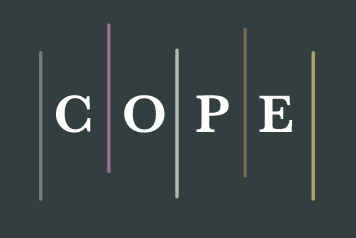A Study of Dimensions of Islamophobia in Nigeria: Causes and Solutions
DOI:
https://doi.org/10.58355/maqolat.v2i4.86Keywords:
Islamophobia, Islam, Nigeria, Orientalism, TerrorismAbstract
Islamophobia is an unfounded fear of Islam and, more accurately, of his adherents i.e. Muslims. This phenomenon has found a fertile terrain in Nigeria given her status as a multi-religious society where Muslims and Christians live together as citizens. Over the years, Islamophobia has taken constitutional, diplomatic, educational, financial, and political dimensions in the country. Any Attempt by Muslims to live in line with their religious codes of conduct and without violating the constitutional provisions is often misconstrued by Christians - their religious counterparts- as a systematic way of Islamizing the country. However, the imaginary fear of Islam/Muslims by Christians is belied by the realities on ground. Against this backdrop, this paper will cast a look at Islamophobia as a concept with a view to highlight its various dimensions in Nigeria. After identifying possible causes of Islamophobia, practicable solutions shall be proffered accordingly. To achieve the objective, both historical and analytical methods shall be employed. Available resources as well as events in the recent past reveal that Islamophobia is not unconnected with misinformation about Islam at the instance of some orientalists. It is also a possible consequence of violent activities of insurgent groups like Boko Haram which proclaim the Islamization agenda to terrorize the entire nation. The paper shall show that this insurgent group is ignorance based and stands condemned by the Muslim authority in the country. As such, the paper suggests adequate knowledge and tolerance as critical tools to curtail the menace of Islamophobia. This will go a long way in achieving mutual tolerance and peaceful co-existence among the adherents of Christianity, Islam, and other religions in Nigeria.
Downloads
References
Abdalati, Hammudah, (n.d), Islam in Focus, Lagos: Islamic Call Centre
Akintola, Is-haq, (2001), Shari’ah in Nigeria: An Eschatological Desideratum, Ijebu Ode: Shebiotimo Publications Constitution of the Federal Republic of Nigeria, 1999.
Corey Saylor, (2014), The U.S. Islamophobia Network: Its Funding and Impact, Islamophobia Studies Journal. Volume 2 Issue 1, Spring.
CIA World Book, over half the population are Muslims and around 46% are Christians. https://commonslibrary.parliament.uk/research-briefings/cdp-2023-0081/ Accessed on 12/11/2023
Chris Allen, (Winter 2000), Contemporary Islamophobia before 9/11: A Brief History, Arches Quarterly, Vol.4, Ed,7, 15.
Christian O. Ele, (2018), Islamization of Nigeria: Implications for Sustainable Peace. International Journal of Social Sciences and English Literature, Vol. 2, No. 1.
Daily Trust, Supreme Court Approves Use of Hijab in Lagos Schools, 17th June 2022, https://dailytrust.com/breaking-supreme-court-approves-use-of-hijab-in-lagos-schools/ Accessed on 14/11/2023
Fred Femi Akinfala, Gabriel Aunde Akinbode, & Ibi Agiobu KeDmmer, (2004), Boko Haram and Terrorism in Northern Nigeria: A Psychological Analysis, British Journal of Arts and Social Sciences, Vol.17, No.1.
Gilbert Enyidan-Okey Ordu, (2015). Shari’ah Law in Nigeria: Can A Selective Imposition of Islamic Law Work in the Nation?”, Journal of Islamic Studies and Culture Vol.3, No.2.
Haroon, Murtada Gbade, (2003) A Discourse on the Effects of Orientalism on the Muslims and Islamic Learning, NATAIS Journal, vol.6, p.34.
N.D. Danjibo, (n.d). “Islamic Fundamentalism and Sectarian Violence: The “Maitastsine” and “Boko Haram” Crises in Northern Nigeria”,
Olayiwola, Abdul Fattah, (2014), Islam in Nigeria: One Crescent, Many Focuses, Nigeria: Sakirabe Publishers.
Oloyede, M. A., (2018), Growth and Development of Arabic and Islamic Learning in `Yorubaland, in Muibi et al Islam in Yorubaland: History, Education and Culture, Unilag Press, 2018, 80-81
Pulse Nigeria, Ex-Minister Accuses Buhari of Supporting, Encouraging Boko Haram, 8th July 2015, https://www.pulse.ng/news/local/fani-kayode-ex-minister-accuses-buhari-of- supporting-encouraging-boko-haram/flwxp1e, Accessed on 14/11/2023
Punch, Boko Haram Kills eight youths in Borno, 23thd June 2023, https://punchng.com/boko-haram-kills-eight-youths-in-borno/, Accessed on 14/11/2023
Rafiu Oriyomi, “Hijab Phobia Engulfs Nigeria’s Southeast” http://www.onislam.net/english/news/africa/463010-hijab-phobia-engulfs-nigerias-southwest.html. Accessed on 12th May 2015.
R. ‘Deremi Abubakre, (Rajab 1406/ March 1986), The Shari’ah and non-Muslims in Nigeria: Its Implications for National Unity, Nigeria: Unilorin Press.
Sahar Aziz, Esq., Khaled A. Beydoun, Esq., Dalia Mogahed and Lakshmi Sridaran, From Orientalism to Islamophobia, https://www.bu.edu/antiracism-center/files/2022/06/Islamophobia.pdf Accessed on 11/11/2023.
Shittu A.B, (2011) “Communal Conflicts in the Nigerian States of Kano and Kaduna: An Analytical Study of the Role of the Nigerian Supreme Council for Islamic Affairs and the Christian Association of Nigeria, A PhD thesis at International Islamic University Malaysia.
Sulaiman Jamiu, (1434 AH/2012 AD), Islam and Politics in Nigeria (1903-1983), Ilorin: Lavgark Investment Limited.
The Sun, 14th June, 2011, ―Anglican Bishops kick against proposed Islamic bank,‖ <http://www.sunnewsonline.com/webpages/news/national/2011/june/14/national-14-06-2011-003.html> (accessed 13 January, 2023). Cited by Shittu A.B, p.118
Uche Nnadozie, (Mon. 18-Wed.20th March, 2019/ 11th – 13th Rajab, 1440 AH), “Blood on the Worship Floor”. National Pilot, Vol. 29, No. 32.
V.A. Mohamad Ashrof, (Jumad Al-Oula 1427 AH/ June 2006), “Myths of Islamophobia”, The Muslim World League Journal
Downloads
Published
How to Cite
Issue
Section
License
Copyright (c) 2024 AbdulHameed Badmas Yusuf, Olalekan Rasheed Azeez

This work is licensed under a Creative Commons Attribution 4.0 International License.






















